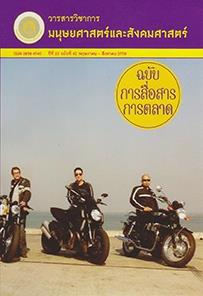ความสัมพันธ์ระหว่างความฉลาดทางอารมณ์กับรูปแบบการแก้ปัญหาความขัดแย้งของนิสิตมหาวิทยาลัยบูรพา The Relationships between Emotional Intelligence and Burapha University Students’ Conflict Resolution Styles
Main Article Content
Abstract
ผลการวิจัย พบว่า ความสัมพันธ์ทางบวกระหว่างความฉลาดทางอารมณ์ กับรูปแบบการแก้ปัญหาความขัดแย้งอย่างมีนัยสำคัญทางสถิติส่วนเพศ ชั้นปีและ คณะ ไม่พบความสัมพันธ์กับรูปแบบการแก้ปัญหาความขัดแย้ง นอกจากนี้นิสิต ที่มีเพศและคณะแตกต่างกันมีความฉลาดทางอารมณ์ที่แตกต่างกัน ในขณะที่ชั้นปี ที่แตกต่างกัน มีความฉลาดทางอารมณ์ไม่แตกต่างกัน และในการแก้ปัญหาความ ขัดแย้งนิสิตมหาวิทยาลัยบูรพาเลือกรูปแบบการแก้ปัญหาความขัดแย้งแบบร่วมมือ
The purposes of this research were to investigate the relationship between emotional intelligence gender,academic year, faculty and Burapha University students’ conflict resolution styles, Chon Buri campus. It aimed to study emotional intelligence in terms of gender, academic year, faculty, and the style of conflict resolution. The participants of this study were 684 undergraduate students from Burapha University, Chon Buri campus. The instruments were 1) the Emotional Intelligence inventory test 2) the Conflict Styles test. Data were analyzed by frequency, t-test, Pearson Chi-square (X2),and One-way Anova designs followed by post hoc multiple comparisons with Least-Significant Difference(LSD).The results are as follows:
There was a correlation between emotional intelligence and conflict resolution styles. However, different genders, academic years and faculties revealed no correlation with conflict resolution styles. The undergraduate students of different genders and faculties displayed significant difference in emotional intelligence, but different academic years had no significant emotional intelligence differences. The undergraduate students chose collaborating style.
Downloads
Article Details
บทความทุกบทความเป็นลิขสิทธิ์ของวารสารวิชาการมนุษยศาสตร์และสังคมศาสตร์ มหาวิทยาลัยบูรพาเท่านั้น


